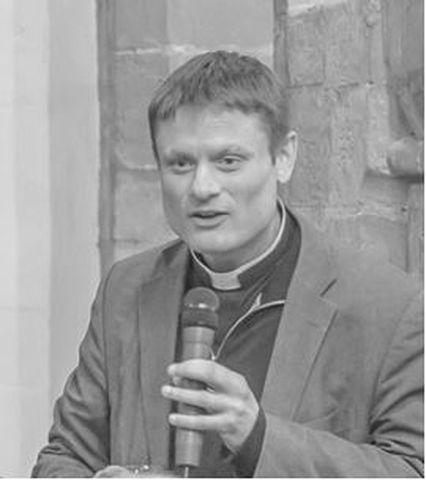
July and August News From the Clergy
21 Jun 2023 • From the Clergy
‘I don’t have time to…’ Think, honestly, how often you have used that line, or heard others around you use it. In some cases, it is absolutely true, and through no fault of the person concerned as they try to hold down a job and raise a family and just keep everything going. In others, however, it is almost a badge of honour to be or appear busy, consumed with activity, never having time to stop.
It can be a means to emphasise importance, to create the impression that you are far above dealing with ‘insignificant’ people or ‘trivial’ matters. And it is symptomatic of a society which idolises slippery concepts like ‘productivity’, dictated by millionaire members of parliament who have inherited wealth or earned it by exploitation, telling workers to do what they would never dream of doing themselves. For ill-defined reasons, normal people should be occupied all the time in the pursuit of the all-elusive ‘growth’. Never mind that plenty of hardworking people, some with multiple jobs, cannot make ends meet. The depressingly familiar answer of the governing elite is that people should simply be working harder and longer. There is a contemporary mindset in society that value is to be measured in hours worked, in busyness, in activity, no matter the other costs.
It is a mindset which finds precious little support in the gospels, where Jesus is certainly not to be found endlessly active. The nature of the gospels compresses a fairly long time period, anywhere between one and three years, into a short space, which can make it seem considerably more breathless and action-packed than the reality. Mark, in particular, is a relentless catalogue of events which at first seems to have Jesus moving from one thing to the next, a gospel of action which hurries to Golgotha.
Yet on a more studied reading, this is not the case. Even among all this activity, there are plenty of examples in Mark (as there are in the other gospels) of Jesus taking some time out. Read through Mark or the other evangelists, and you will find Jesus withdrawing across lakes or up mountains, seeking out privacy and seclusion with his disciples. He consciously looks for peace, for time to pray, for time to be away from the pressures and demands of his very public ministry.
That ministry had begun with the time in the wilderness, and it continues with repeated searches for wilderness places to recharge. Jesus serves here as a reminder of the limitations of the human body, which cannot be endlessly active. It needs rest, it needs sleep, it needs time for prayer and contemplation. There is, as Jesus makes clear through his life and ministry, nothing divine or noble about exhaustion and activity for its own sake. It was a wisdom which was retained in monasticism, where there was a recognition of the importance of balancing work/activity with prayer/contemplation and rest/sleep.
So as our magazine theme for this month is refreshment, it is worth each of us considering where we find refreshment in our own lives. And we can do so in both senses, asking ourselves how we draw refreshment in our lives, but also how we reset habits and patterns which are proving deadening or even destructive.
Yet refreshment is not just something personal. It is also something corporate. As a church, as a community, we are compelled from time to time to ask ourselves the same question about where we are drawing refreshment and how we are refreshing others. It can be easy to slip into familiar patterns, to want to just keep doing the same thing, but sometimes we have to ask ourselves what need is being met by that. As in our individual lives, our corporate life should be a balance of action (outreach) and contemplation (prayer). What do we need to refresh to make this a reality in our current context?
Phil Bradford